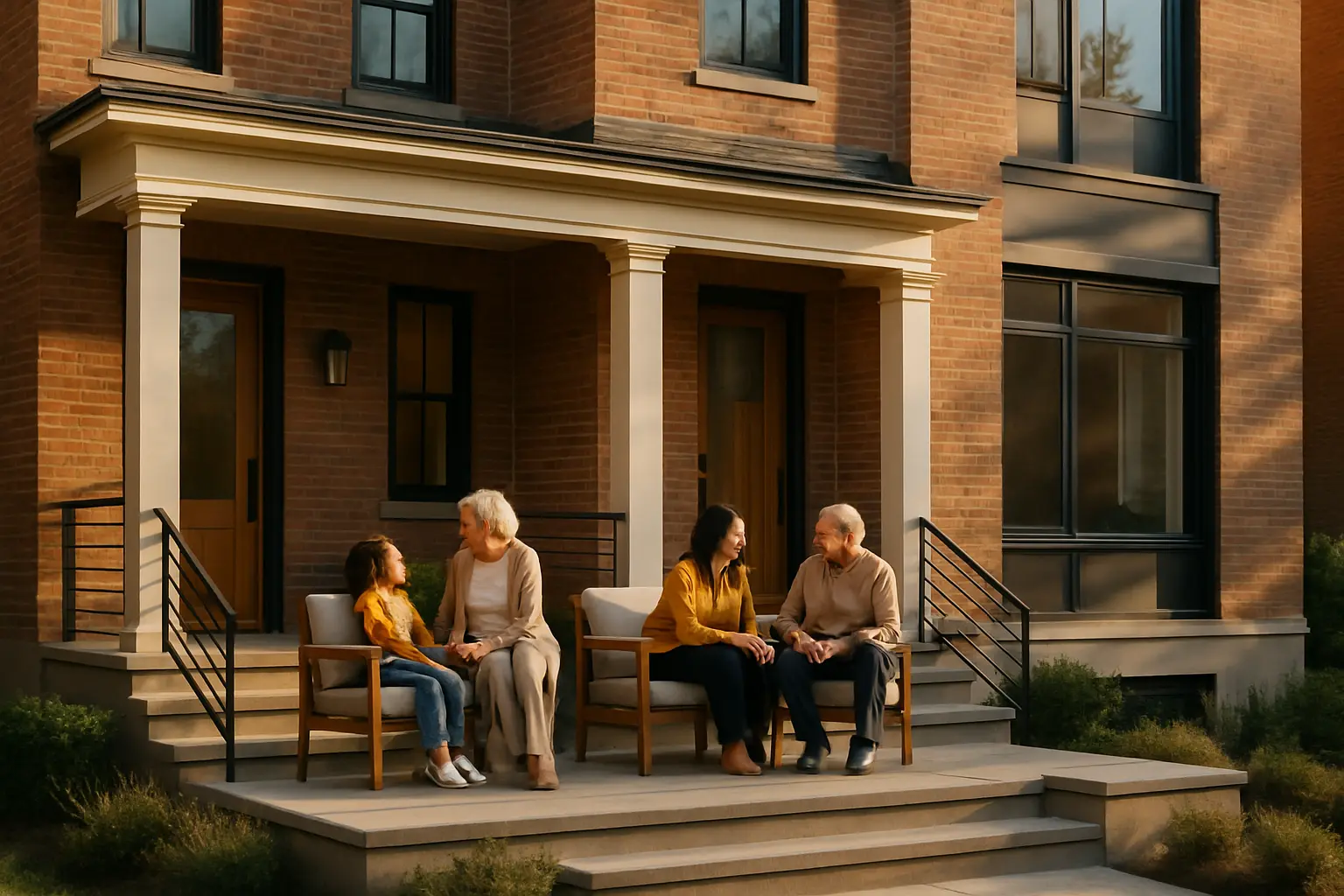Boston's Hidden Gems: The Rise of Multi-Generational Living Spaces
Discover how Boston's innovative residential designs are transforming traditional homes into versatile multi-family sanctuaries

The Growing Trend: Why Boston Families Are Embracing Multi-Generational Living
In the heart of New England, Boston is witnessing a remarkable transformation in residential living as more families embrace multi-generational households. Recent studies show that nearly 25% of Boston's residential renovations now focus on accommodating extended family living arrangements, marking a significant shift in how we think about modern urban housing.
This surge in multi-generational living isn't merely a trend—it's a response to evolving family dynamics, economic pressures, and a desire for stronger family bonds. From Beacon Hill to Dorchester, families are reimagining traditional Boston homes to create spaces that accommodate grandparents, parents, and children under one roof.
Architectural Innovation: Design Elements for Modern Family Living
Boston architects and designers are pioneering innovative solutions to transform historic properties into functional multi-generational spaces. Key features include:
- Flexible Floor Plans: Open-concept designs that can be easily modified for changing family needs
- Private Entrances: Separate access points ensuring independence for all family members
- Smart Home Integration: Technology that helps monitor elderly family members while maintaining their autonomy
- Shared Spaces: Thoughtfully designed common areas that promote family interaction
"The beauty of multi-generational design lies in finding the perfect balance between togetherness and privacy," explains renowned Boston architect Sarah Chen.
Financial Benefits: The Investment Advantage
Multi-generational properties in Boston offer compelling financial advantages:
- Shared mortgage and maintenance costs
- Increased property value due to versatile living spaces
- Reduced childcare and elderly care expenses
- Tax benefits for home modifications supporting elderly family members
Property analysts project that multi-generational homes in Boston appreciate 15% faster than traditional single-family properties, making them attractive long-term investments.
Making the Transition: Expert Tips for Success
Finding the Right Property
When searching for a multi-generational home in Boston, consider these essential factors:
- Proximity to medical facilities and community services
- Accessibility to public transportation
- Zoning laws and renovation restrictions
- Neighborhood amenities for all age groups
Adaptation Strategies
Successfully transitioning to multi-generational living requires careful planning:
- Start with a family meeting to discuss expectations and boundaries
- Work with experienced contractors who understand multi-generational requirements
- Phase renovations to minimize disruption to family life
- Create clear guidelines for shared spaces and responsibilities
As Boston continues to evolve, multi-generational living spaces represent more than just a housing solution—they're fostering stronger family bonds and creating sustainable living arrangements for future generations. Whether you're considering this lifestyle change or planning for the future, Boston's innovative approach to multi-generational living offers inspiring possibilities for modern family life.


